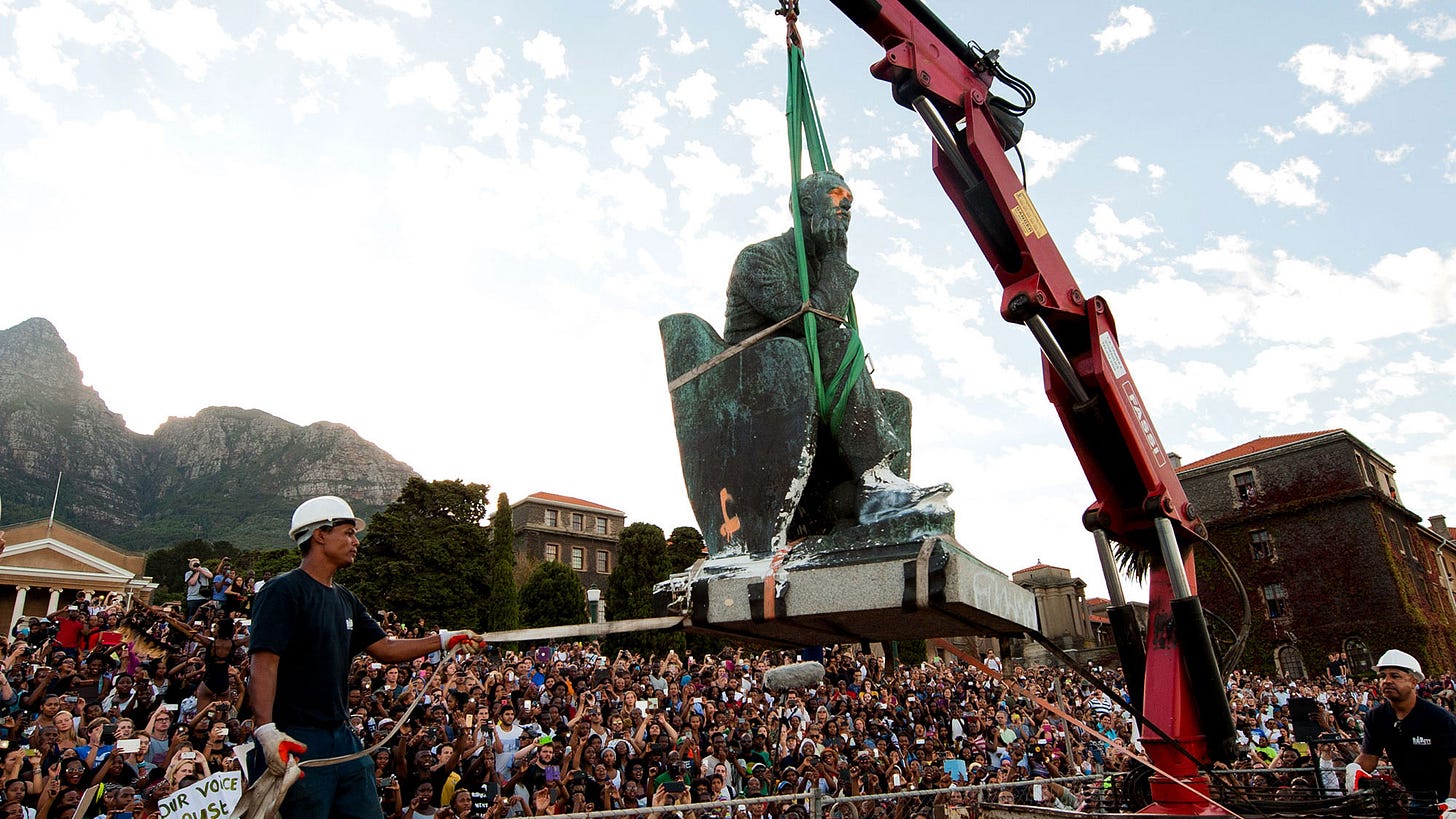Rainbow Nation: The Force Awakens
As I stare out of the train window, watching the neatly-spaced Dutch farms flash past, I spot a faint rainbow on the horizon. Make no mistake, during this time of year the weather is miserable. But thanks to El Nino (or the weather gods), the Dutch have had a 'light' winter so far, meaning that once every few days you can actually see the sun. My attention is drawn to the rainbow: it is unlike the rainbows we get in South Africa. There they appear after a thunderstorm, shiny and brilliant, connecting one side of the horizon with the other, and signalling the arrival of fine weather. This one, instead, sits low and distant. It signals the coming of rain.
Trains are wonderful for thinking, and I'm thinking about the year that's been. One thing is certain: 2015 won't be a year we are likely to forget. Globally, the Syrian war had far-reaching geopolitical repercussions: hundreds-of-thousands of refugees are still streaming into Lebanon and Turkey with a few thousand lucky ones ending in Sweden or Germany or Canada; the continued emergence of radical terrorist organisations resulted in the tragic events of Garissa, Kenya (148 students), of Sousse, Tunisia (38 people), of Paris, France (130 people), to name a few; the near-Grexit and the shift towards a more fragmented Europe; the rise of xenophobia and, most recently, Islamophobia, notably in that country most famous for freedom and opportunity. Russia and Brazil's economies are tanking: the expected GDP growth per capita of both these countries is -3.8%. The world at the moment, it seems, is fragile.
But my thoughts are mostly with my own country. I don't think many would disagree that 2015 was one of the most tumultuous years South Africa has had as a democracy. Yes, in 1998 interest rates moved upwards of 20% following the Asian crisis. The Rand collapsed after 9/11. In 2008 we experienced country-wide xenophobic attacks. We've had periods of extended strikes, notably after the 2010 World Cup and again in 2014. And 41 mine workers were killed by police at Marikana in 2012.
But 2015 felt more intense: the EFF was forcibly removed from parliament in February; in April, at least seven foreign nationals were killed in violent xenophobic attacks, and the firing of Finance Minister Nene in early December sent the Rand into uncharted territory. But the major events of 2015 emerged from an unlikely source: the leafy, calm campuses of some of South Africa's best universities. Rhodes fell. Verwoerd was moved. Students, angered by the slow transformation of university infrastructure, curricula, and personnel, staged sit-ins, occupied public spaces, toppled statues, renamed buildings, and ultimately halted the sharp increases in student fees that had become the norm.
But these protests did more than just halt fee increases: they gave rise to a movement for social change that moved beyond party politics. They empowered rather than disempowered. They weren't exclusively black, although they did – and continue to – confront the notion of white privilege. In truth, it is a conversation we should have had a long time ago but which, perhaps, needed the frankness of a new generation.
As I reflect on my own conversations with colleagues and students, one thing stands out quite prominently: the rise of female leadership. Of course, there had been female political leaders before: both the mayor of Cape Town and the premier of the Western Cape are female, for example, and Angela Merkel, Chancellor of Germany, won Time's prestigious Person of the Year award. But across South African campuses, women leaders rose to the fore. Their influence, I suspect, is a major reason the movement remained non-violent, even in the most testing times of police brutality.
My thoughts continue to return to a conversation I had with one such student leader earlier this year. We spoke about Stellenbosch and the difficulty of black students to call it home, when she remarked: 'Johan, we don't live in a world of rainbows and fairies. The Rainbow Nation is dead.' I wanted to appeal, but had no immediate response. She had made her point.
I think about what has happened since that conversation: to Rhodes, to Verwoerd, to Blade, to Zuma. There is no doubt that the Rainbow Nation my generation envisaged has not materialised. (No matter how hard I try, though, I cannot let go of the euphoria I feel when thinking of the young, promising country, for me best memorialized in this (an inevitable sport) moment. Just watch the last seven minutes.)
But let's not dismiss the idea of a Rainbow Nation entirely. There's been an awakening. The rainbows and fairies may be gone, but the inclusive and passionate student movements of 2015, to me at least, suggest a different kind of rainbow. One that is less shiny and brilliant. One that is not entirely complete. One that signals the coming of the rain. And in a country scorched, rain is exactly what we need.
*This is my 42nd and final post of 2015. During the last 12 months, more than 100 000 unique visitors arrived here. As always, I have to thank my lovely wife Helanya for her patience and proofreading skills. Because of the success of the blog, I've been offered a contract to write a monthly column for Rapport (in Afrikaans) and Finweek (in English) in 2016, a challenge I look forward to. Do have a blessed festive season. Travel safely. Rest. And, finally, if you're worried about the global economy, look at it this way: Ethiopia, India, the DRC, China and Bangladesh are predicted to grow at more than 5% in 2015. They are unlikely to slow down significantly next year. Together, they comprise 41% of the world's population. That is still improvement on unprecedented scale. We'll be all right.
**Image source: UCT, Roger Sedres/Image S.A.


